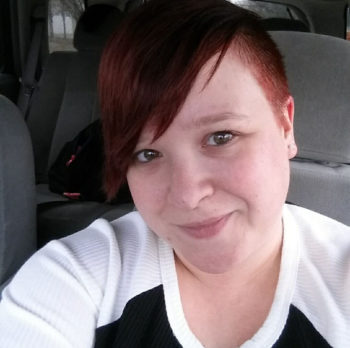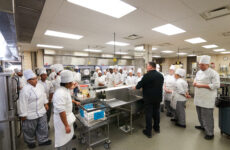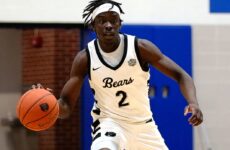
Sam Kennedy- Member of the LGBT+ community and DMACC student
In 1988, Robert Eichsberg and Jean O’Leary founded National Coming Out Day on October 11, which marked the one year anniversary of the national march on Washington D.C. for Lesbian and Gay Rights.
The struggles of the Lesbian, Gay, Bisexual, Transgender, Plus community (LGBT+) were apparent years before this march. The Stonewall riots in 1969, which were a collection of spontaneous demonstrations by members of the community followed an early morning police raid on June 28, 1969 where a few arrests were made and several hospitalizations after patrons of the Stonewall Inn refused to leave, causing two nights of riots and demonstrations around New York, New York.
Even today the struggles of the community are present in everyday life. The CDC reported in 2015 that queer teens are more likely to commit suicide than their heterosexual counterparts.
Sam Kennedy, a member of DMACC’s LGBT+ club, talked about what it’s like being in the community and the struggles she encounters every day.
“The way society looks at you is a challenge in itself. I think over the years of course society has become more accepting, of the LGBT+ community but obviously there is also going to be people who don’t agree and I think that’s always going to be a constant challenge,” Sam says.
Family was a strong barrier to overcome for Sam, even though her family is rather supportive of the community and their rights, her mother had a less than ideal reaction to Sam telling her of her bisexuality.
“We were always raised to accept everybody and love everybody and she told all of us kids that she would love all of us no matter what. To have her question me and not be completely open and accepting is hard. I thought she would come through on that but she didn’t.”
Coming out is a process and not a one-night thing; it is the culmination of the pain and other emotions one feels based on reactions from peer and family reaction to a wide variety of things. No experience is the same, it is different for everybody and each time you have to come out it is different.
Arissa Jensen, a culinary arts student at DMACC recounts her story: “I looked up different sexualities in high school one day and realized that I identified heavily with asexuality and came out to my best friend a few days later.”
There is a large stigma associated with asexuality that Arissa has to combat constantly.
“I wasn’t damaged, this is who I am, I explain it as there is a switch in your brain, mine just wasn’t created,” Arissa says.
Many people in Arissa’s life may find it hard to comprehend what asexuality is, but overall they are pretty accepting.
“The first girl I ever told about my asexuality had the reaction of ‘Oh, okay.’ and we went on as normal.”
Reactions like these are a relief for people in the community, a calm response of tolerance, when in this world there is much homophobia and misunderstanding about the LGBT+ community.





Comments